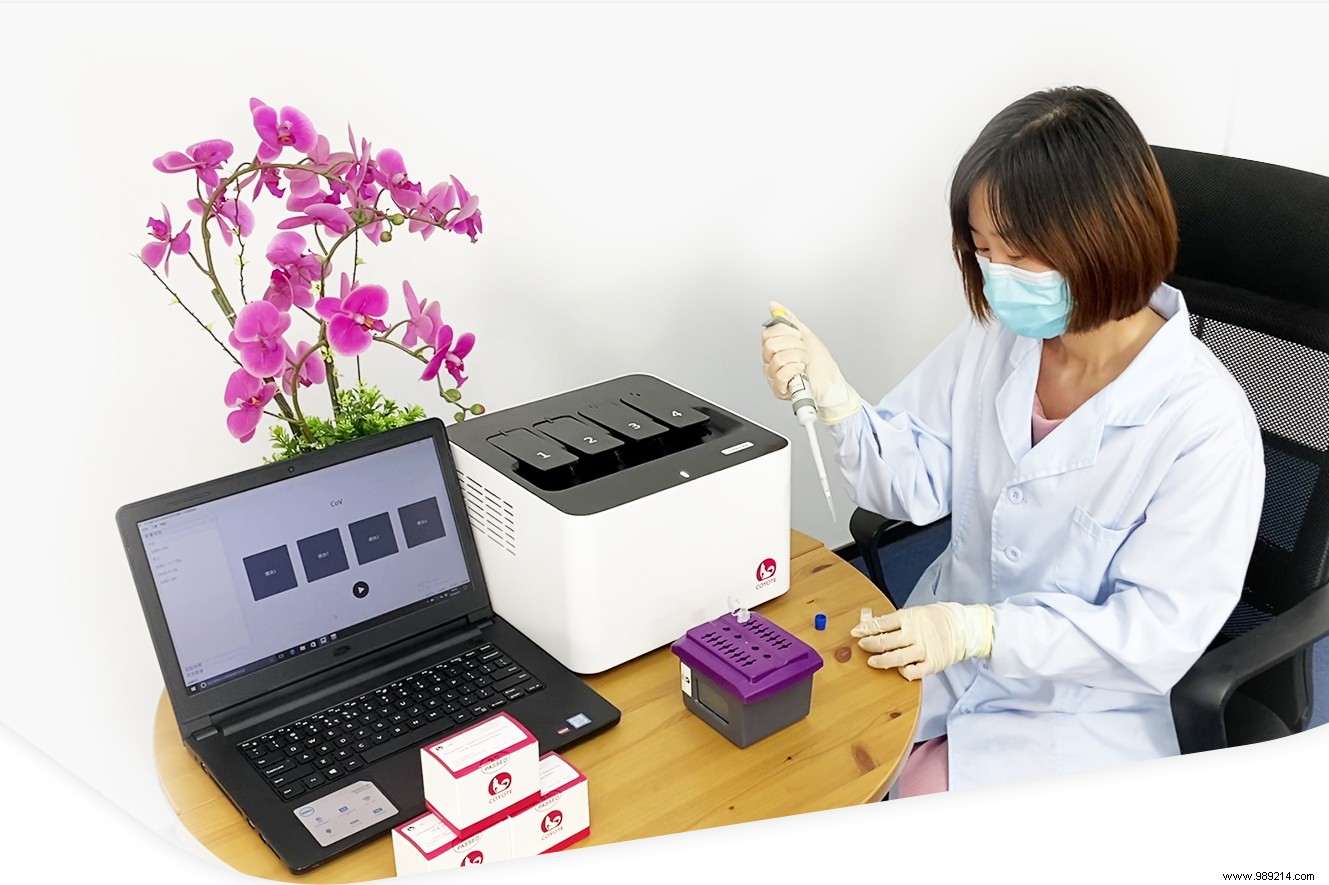British researchers say they have developed a very rapid screening test. This test uses artificial intelligence to detect the coronavirus. In view of the encouraging results, the team wants to market this screening method next year.
Testing the population is one of the useful actions for the fight against the SARS-CoV-2 coronavirus . Recently, the Chinese company Coyote said it has developed a PCR test machine that provides a result in just half an hour. This machine, called Flash 20, can also process four samples simultaneously. The company behind this project then claimed that this Covid-19 test was the fastest in the world (see below).

In a pre-published study on the MedRxiv platform on 17 October 2020, the physics department of the University of Oxford (United Kingdom) declares that it has developed a screening test whose result arrives after only five minutes. Highly accurate, this test uses a machine learning system . With such a short time, the researchers believe that the device could be useful for quickly screening people in places open to the public. These can be companies, airports or even concert halls.
“Our method quickly detects intact virus particles; which means the test is simple, extremely fast and cost effective" said Achillefs Kapanidis, one of the study participants.
The method in question begins with a swab from the patient's throat. Then the sample is analyzed under a microscope. This is to identify markers of infection to SARS-CoV-2. Software based on a machine learning system is responsible for analyzing the sample. This same software is accurate and fast, because it incorporates the fact that each virus has a different size and shape.
A classic PCR test involves amplifying RNA molecules in samples in order to isolate them from other components. However, this is not the case with the new test and this therefore explains its speed. According to the researchers, the latter has a 98% success rate . However, this data should be put into perspective insofar as the manipulations were carried out under the conditions of a research laboratory.
In addition, the study has only been the subject of a prepublication. It will therefore be necessary to wait before the committee of a scientific journal approves it. Thus, the fact that scientists promise the test will be marketed as early as 2021 should be taken with a grain of salt. In addition, the researchers say they are currently working on transforming the test into a fully integrated device . This should be deployed as a real-time diagnostic platform.